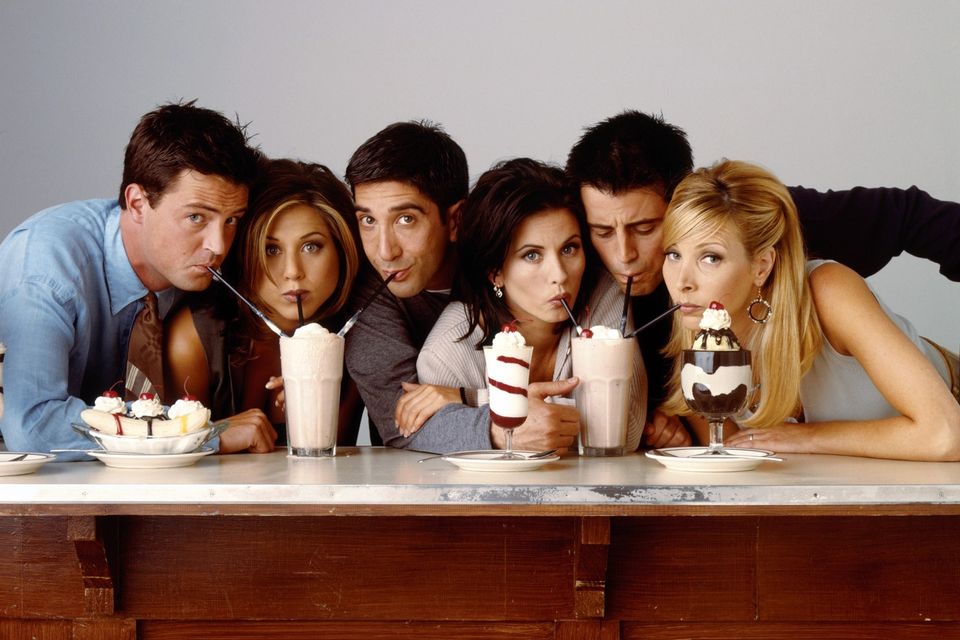
How the US sitcom became an enduring global sensation
By Richard Howells
I have to be honest – I didn’t actually watch the first episode of the classic TV series Friends when it originally aired in the US on September 22, 1994. Nor did I bother when it first turned up on British television the following spring.
But the final instalment was a different matter. I was on a road trip in the US at the time and checked into a motel on the outskirts of Cincinnati, Ohio specially to catch the concluding episode (The Last One) on May 6, 2004. Room service arrived in the nick of time. My burger and beer only fuelled my appetite for what was to come – and the anticipation of guessing what the final line would be.
So why the big change? How did my attitude evolve from indifference in the nineties to excitedly pulling off the interstate in the noughties? The answer is key to the show’s success – and why it remains so popular today.
Back in 1994, the initial premise of Friends seemed to lack promise. The plot revolved around six not especially interesting characters, and none of the cast was especially famous. The show was set mainly in two adjacent apartments in Manhattan and a coffee bar called Central Perk to which the characters returned almost every episode and in which (in the best sitcom tradition) the best seats were always available. Crucially, not a lot actually happened.
So why did it work? The first important thing is that Friends was not so much a situation comedy as a character comedy. That meant it did not need a remarkable premise or dramatic incidents to drive the show. It was an ensemble piece in which we gradually got to know the characters and the friends became our friends.
The show was built around everyday storylines – crushes, romances and misunderstandings or maybe something as gently amusing as Ross overdoing the teeth whitener. Viewers began to identify with individual characters or to take sides on the issues of the day.
Friends was, of course, very well produced, cast and written. As it became even more successful, it survived the normally perilous inclusion of celebrity guest stars and – vitally – it never “jumped the shark” (industry-speak for growing out of its initial premise or building up to dramatic, but ultimately silly, plot gimmicks from which it is impossible to recover). Ultimately, and hearteningly, the six characters all remained friends.
Beneath the professional craft and production polish of Friends, it is the concept of friendship, underscored by the viewer’s sense of aspiration, which ultimately explains the series’ success then and now.
One of the functions of popular culture is to provide a better imaginary world than the one we actually inhabit.
The world of Monica, Rachel, Joey, Chandler, Phoebe and Ross is certainly a wishful one for many. They live in improbably nice apartments for their jobs (or lack of them), and they are defined by their personalities rather than their careers. They are good-looking and well-dressed, and the series centres on their ample leisure and social time. Unlike reality, arguments are always overcome and – most importantly of all – friendship always triumphs.
What a contrast this vision provides to the actual lives of so many people today. The real world is beset with isolation, loneliness, sometimes insurmountable problems, occasionally fear and certainly drudgery. But with Friends, as the chirpy theme song reminds us, there is always someone “there for you” – if only in surrogate.
Some critics today carp about the show’s lack of diversity and outdated attitudes to the cultural issues of the present day. While this may be true, like TV series, criticism also dates. And series which have long gone into reruns, repeats, streaming and syndication are virtually critic-proof in that they are recommended by word of mouth rather than increasingly ideologically-centred reviews. Viewers just want it to be funny.
Oh: And in case you were wondering, the final line in the whole of Friends went to the late Matthew Perry as Chandler Bing. When Rachel suggests they all go for one last coffee, Chandler quips: “Sure. Where?”
Richard Howells is Emeritus Professor of Cultural Sociology, King’s College London. This article is republished from The Conversation under a Creative Commons licence




